The updater application has been installed on millions of PCs as part of iTunes, allowing the Cupertino-based company to push users the latest updates to the digital media application and supporting QuickTime software.
Last month, however, Apple began using Software Update to recommend that Windows users also download and install its fledgling Safari web browser, which the company claims is the "fastest and easiest-to-use web browser for the PC."
The move was met with considerable criticism from industry figures and pundits alike, who accused the iPod maker of crossing an ethical barrier in its attempts to rapidly muscle its way further up the browser charts at the expense Microsoft's Internet Explorer and other third-party Windows browsers, like FireFox.
At issue was the fact that Apple was pushing Safari upon users who had never used or installed a prior version of the browser. As a result, the company has now released a redesigned version of Software Update for Windows PCs, notes ZDNet, that separates updates to applications users have installed on their PCs from new products they have not.
The new version, labeled version 2.1.0.110, also offers users a toggle to turn off automatic software updates, though the box is checked in the "on" position by default. Yet another added feature offers to "ignore" selected updates, such as Safari.
The old version of Software Update for Windows (left) compared to the new version (right).
Nevertheless, Apple continues to ping Windows users of the new application to download and install its browser. And ZDNet further speculates that redesigned interface may foreshadow a move by the company "to shove more software onto Windows users" in the near future.
 Slash Lane
Slash Lane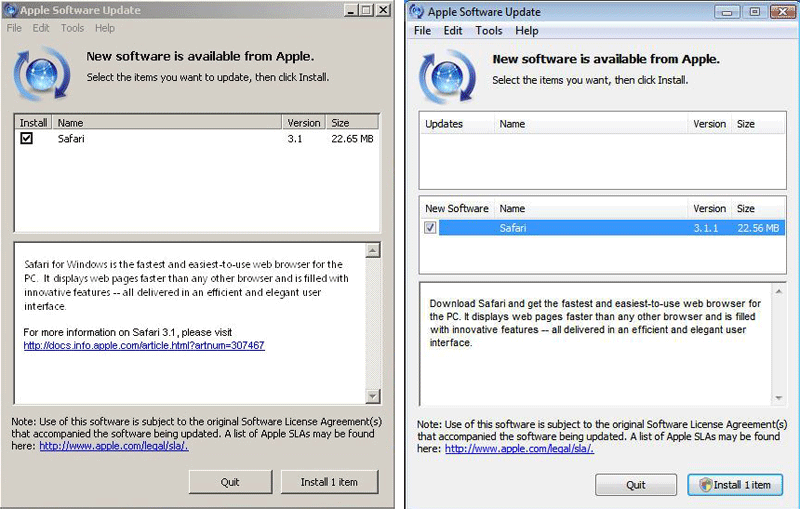
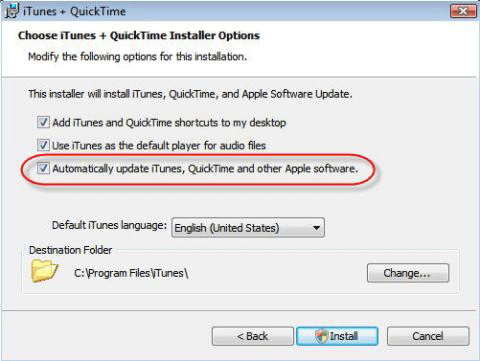







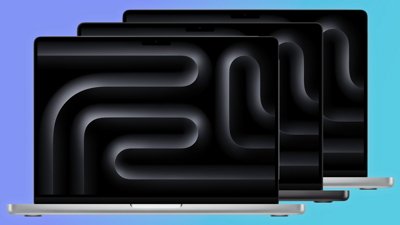
 AppleInsider Staff
AppleInsider Staff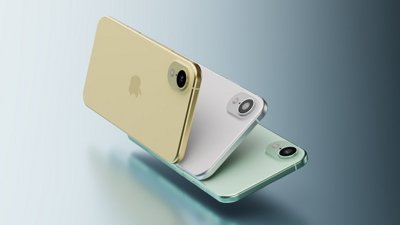
 Malcolm Owen
Malcolm Owen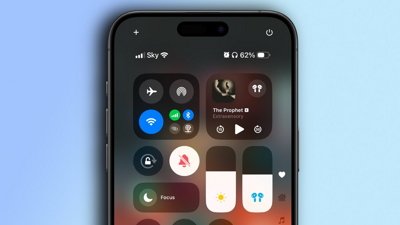
 Oliver Haslam
Oliver Haslam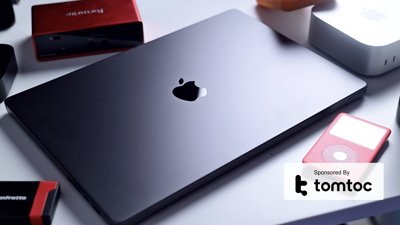
 Andrew O'Hara
Andrew O'Hara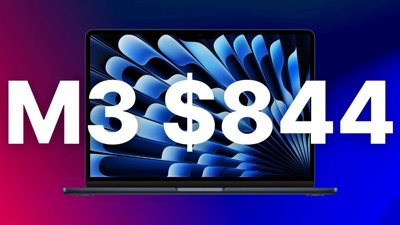

 Wesley Hilliard
Wesley Hilliard
 William Gallagher
William Gallagher
 Christine McKee
Christine McKee








51 Comments
While people will still complain that it's not enough or too little too late, I wonder how many other companies would write a new version of their installer to appease the masses so quickly?
iTunes is in ur windoze...
...screwin wif ur files
Hey, Apple may be pushing ethical boundaries, but Internet Explorer *breaks a lot more ethical boundaries by refusing to properly support standards. Anything that takes browser share away from IE I'm all for.
Apple has made changes to the latest version of its Software Update mechanism for Windows PCs after being lambasted for using the application as a trojan horse to gain an advantage in the battle for share of the web browser market.
Cynical much?
A "trojan horse" doesn't give you an option.
Apple simply offered users another browser. The user didn't have to download it! They could have unchecked it (see the screenshots above)!
Hey, Apple may be pushing ethical boundaries, but Internet Explorer *breaks a lot more ethical boundaries by refusing to properly support standards. Anything that takes browser share away from IE I'm all for.
Yeah, I just can't get all that excited about this.
Seems to be much ado...